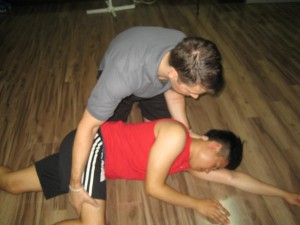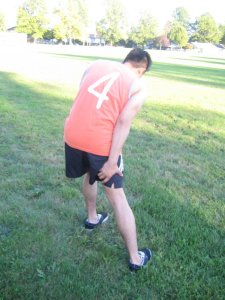
One of the best WSIB approved first aid and CPR providers in Ontario is Toronto First Aid. Students are offered a large selection of classes in first aid, cardiopulmonary resuscitation, and many more. Popular courses are standard and emergency first aid which include CPR and automated external defibrillator (AED) training. Toronto First Aid’s program rates are very affordable as well, paid in full during enrolment. Trainers are all certified by WSIB certificates so students receive certification for the workplace. Learn about burns, seizures, heart attacks, angina, stroke and other serious medical emergencies by enrolling in first aid courses today. A full list of classes and schedules are on the Toronto First Aid website.
Registering for a program
You can easily register for a first aid training program on the provider website. Just choose a class from the list, along with a schedule, then fill out the registration form to sign up. You can also register through e-mail or telephone call (walk-ins are highly encouraged as well). Any requests will be entertained during business hours only so expect a reply or confirmation of registration by then.
- Contacting this provider via email can be done with: info@firstaidcourses.ca
- On-line registration and more contact information available at: www.torontofirstaidcpr.ca
Tuition and training fees
All fees are paid during enrolment so students don’t have to worry about additional expenses. Total fees paid include tuition, taxes, certificates and registration expenses, and St Mark James training manuals. Students who drop out are entitled to a full reimbursement, as long as they notify the staff at least 72 hours prior.
Basic Standard First Aid Training
Basic standard first aid is a 16 hour program that focuses in a variety of different injuries and topics such as seizures, poisoning, burns, anaphylaxis, shock, broken bones, head injuries, hypothermia and many more medical emergencies. Cardiopulmonary resuscitation (CPR) is also include in this program, teaching trainees how to adequately perform chest compressions and give rescue breaths. However, students can also sign up for CPR-only classes.
CPR “Only” Classes
CPR “only” courses are designed for participants that do not require any first aid certification. These courses require approximately 5 hours to complete and are divided into 3 level’s. CPR level “A” is designed for participants that want to learn rescue techniques for adult victims only. CPR level “C” is designed for participants that want to learn rescue techniques for casualties of all ages. CPR level “HCP” includes all of the content from the previous levels, however, it adds content for health care providers. All courses include AED training.
Private classes
Toronto First Aid also offer private classes for trainees who want to train at home or book a trainer for special events. Companies usually book trainers for conferences and seminars. If you decide to book a private trainer, be sure to inquire beforehand about rates and schedules.
Certificates
All students receive WSIB approved cards once the program and classes are passed. To pass, a student is required to have complete attendance, good demonstration of first aid skills, and at least 75 percent on the written exam. Wall-mount certificates are available upon request.
All certificates expire within three years so be sure to sign up for a recertification program before they expire. Recertification for first aid is available twice a week, 8 hours long. CPR recertification is also available twice a week as well, 4 hours long for CPR C and HCP.
Did You Know?

Arthritis
Arthritis is the inflammation if a joint, causing stiffness, pain, and immobility. This condition typically arises and worsens with age. There are two types of arthritis: osteoarthritis and rheumatoid arthritis. Osteoarthritis arises from the normal wear and tear of the body as it ages. The fluid surrounding the joint becomes decreased, causing the bone to rub against the synovial sac and causing pain and inflammation of the tissue. On the other hand rheumatoid arthritis is the effect of an autoimmune disorder that causes the body’s antibodies to attack itself.